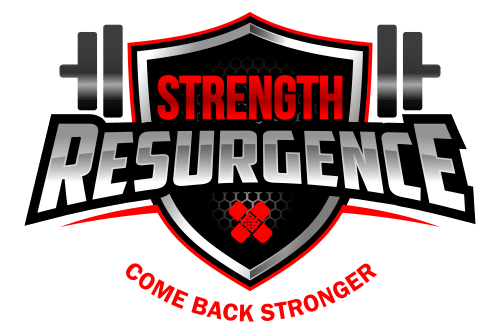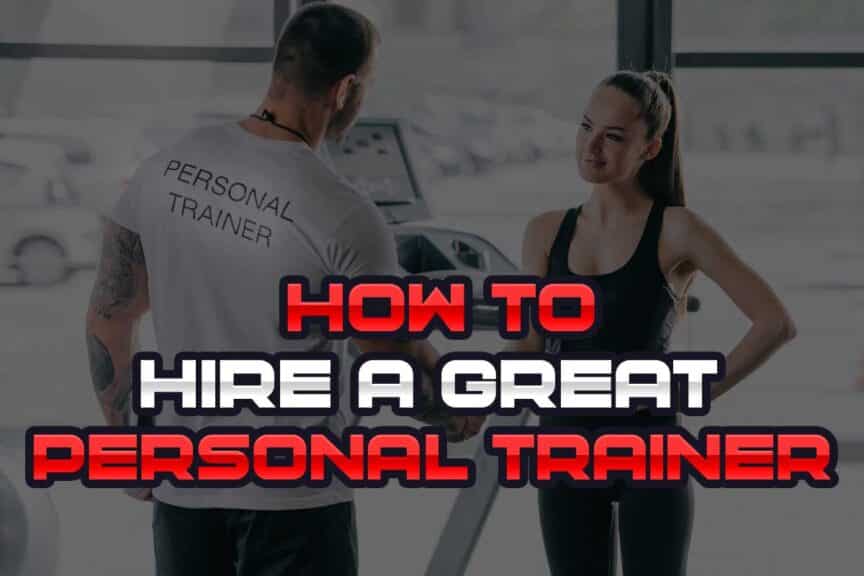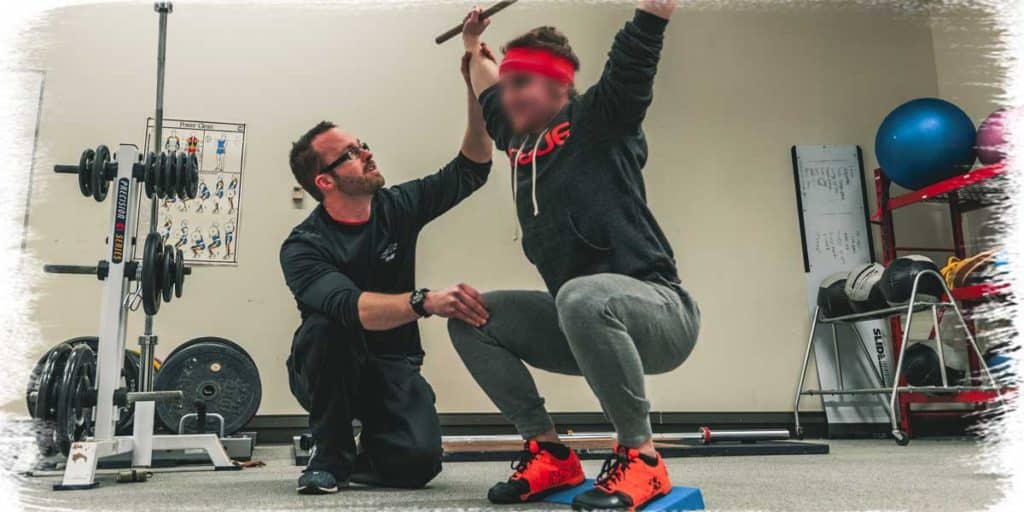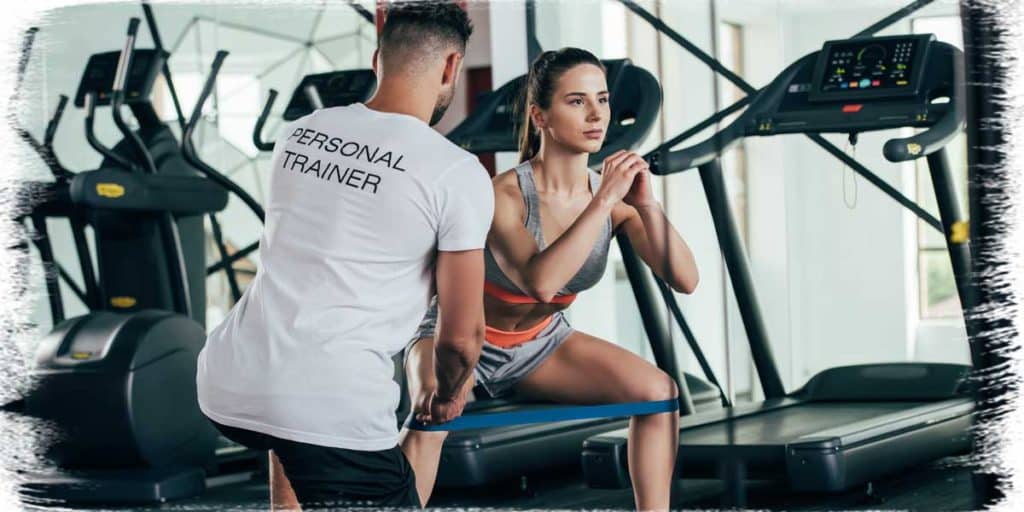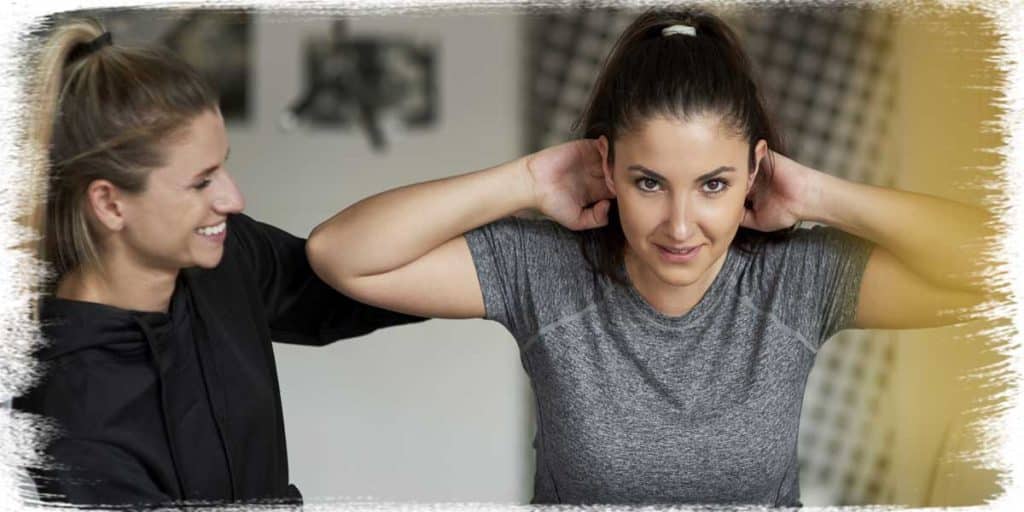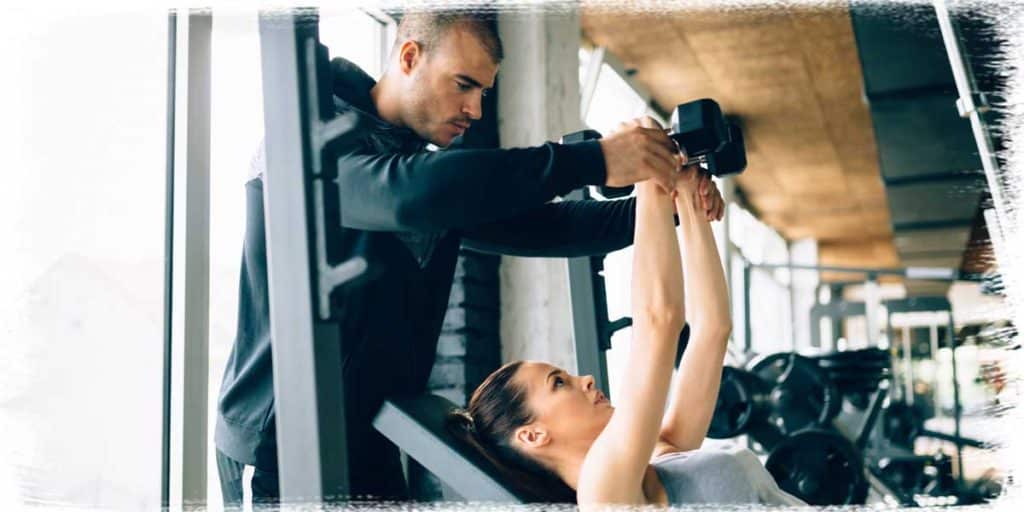So you’ve decided that you’re going to get a personal trainer, and you’re committed to creating a healthier, more active version of yourself. Awesome! There are some genuinely amazing changes and benefits that await. But the final step in hiring a personal trainer is making sure that you hire the right personal trainer for you!
The right personal trainer for you is one who has appropriate qualifications, shows unconditional positive regard for you on your journey, specializes in the style of training you’re interested in, practices what they preach, and takes an active role in helping you reach your goals.
There can be a whole lot to unpack when it comes to discussing what makes a personal trainer the right fit for you, so if you’re wanting to read all of the details and have complete peace of mind that you’re signing on with the best trainer for you, keep on reading this article!
ARTICLE OVERVIEW (QUICK LINKS)
Click/tap on any of the following headlines to instantly jump to that section of the article!
What makes for a “good” trainer?
Knowing the role of a trainer in your journey
Hiring a trainer who specializes in what you’re after
Hiring a trainer who practices what they preach
Bonus: can you switch trainers if need be?
Final thoughts
Also, be sure to check out my other articles that go hand in hand with this article:
- How Often Should You Workout With A Personal Trainer? | The Formula
- Tips From A Pro: 12 Benefits Of Hiring A Personal Trainer
What makes for a “good” trainer?
One of the challenges with the fitness industry, in general, is that it’s sort of like the Wild West, where there’s not a ton of regulation across the industry. As a result, it can be easy for someone to call themselves a “personal trainer” despite having the requisite knowledge to provide others with safe and effective physical fitness regimens.
Thankfully, most commercial gyms and training facilities require specific, requisite education or certification(s) before being enlisted as a trainer with the facility. And while you’ll likely be in pretty competent hands so long as the gym has some standards in place, it would be prudent of you to do a bit of research on trainer requirements beforehand.
Here is an essential piece of information you should be aware of right away:
The industry has plenty of amazing, talented and genuinely remarkable trainers out there who don’t have much for certifications behind their name. Conversely, there are trainers out there who have some serious “alphabet soup” behind their name for credentialing yet aren’t that competent when it comes to coaching and training others.
So, as you look for a trainer, don’t base everything off of credentials (there are other essential factors covered in this article), yet make sure that there’s a valid credential or two (or at least a lot of personal recommendations from others) for a trainer you may be working with.
Understanding certifications
In the world of fitness and training, a certification is only as valuable as the governing body that issues the certificate. The following are some of the more common and prestigious personal training credentials in the industry. If you’re looking for a more extensive list, a quick Google search should provide you with much more in-depth content than what’s covered in the following section.
Note: I am not including post-secondary studies in this list (Masters of Science degree in exercise physiology, a kinesiology degree, etc.), only certifications pertaining directly to training others. An undergraduate degree in exercise science, kinesiology, physical education, etc., or a Master’s degree in the field can lend serious credence to the trainer, but these are not covered within this article.
Certified Strength & Conditioning Specialist (CSCS) issued by the National Strength & Conditioning Association (NSCA)
The CSCS is perhaps the most high-ranking credential that pertains to the world of coaching and training others specifically for strength and endurance. It is internationally recognized and can only be obtained when the individual has completed an undergraduate degree with requisite coursework successfully completed within that degree (undergraduate courses include anatomy, physiology, exercise physiology, etc.). The certification must be renewed every three years, and this can only be done by completing a specific number of continuing education units (CEUs) to ensure knowledge and competency are continuously advanced.
The NSCA also offers other certifications, including the certified personal trainer (NSCA-CPT), tactical strength & conditioning facilitator (TSAC-F), certified special population specialist (CSPS) among others.
American College of Sports Medicine (ACSM-PT certification)
The ACSM offers several different health and fitness certifications (including their personal training certification), all of which are well recognized due to the prestigious reputation of the ACSM. Many truly talented personal trainers and fitness professionals have an ACSM credential to put behind their name and have some excellent skills and knowledge as a result.
American Council on Exercise (ACE certification)
The ACE certification for personal training has been around for quite a while, and it has a very well-known reputation within the world of personal training. It’s often favoured by many fitness facilities and gyms due to the certification being accredited by the National Commission for Certifying Agencies (NCCA).
Knowing the role of a trainer in your journey
The role of a personal trainer extends far beyond simply telling you which exercises to do and counting your repetitions as you do them. Even if they have all the knowledge, certifications and experience that you could possibly hope for them to have, you still need to make sure that they’re a good fit for you.
How to know if a trainer will be a good fit for you
Trainers often have personal bios on the wall of the facility that they work in or on the facility’s website that they’re employed by. If you read a bio that seems to catch your eye, the next step is to schedule a consult with them, as you can ask them specific questions you may have to help better determine if they’ll be a good fit.
The trainer’s role beyond telling you what to do
In a much broader context, an excellent personal trainer is someone who knows that every individual has unique physical abilities, limitations, goals and a uniquely different starting point when coming to them for their personal training. They should view you as a person who requires an individualized approach and not someone who is exactly the same as every other person they’ve trained.
As a result, your trainer should be willing to take the time to determine what will be appropriate for you to do, what not to do, and be ready to make changes as needed as you progress through your sessions.
This is often done by them performing a movement analysis on you of some kind (such as a Functional Movement Screen) and other required assessments to help determine the best course of action to set you on and track progress as time goes by.
Pro tip: If your trainer doesn’t assess, the best they can do is guess.
Your trainer should be willing to individualize your exercises and movements to not only ensure that they’re keeping you safe (based on what your body can tolerate) but also to maximize your performance improvements and overall results. They should have a reason for every single exercise that they have you do (even if it’s just an exercise to burn off a few more calories).
If you have a consult with your trainer before you commit to training with them (which is a wise idea), don’t be afraid to ask them what their training philosophies and approaches are.
Ask them if they have any experience or knowledge with any unique factors that you may feel are worth bringing up. The more questions you ask, the more you’ll be able to accurately gauge whether or not they may be a good fit for you.
Hiring a trainer who specializes in what you’re after
Since the fitness industry is so broad and multifaceted, one single trainer can’t be the expert on every single realm of specialized health and wellness pursuits. A personal trainer may be exceptional at helping you lose weight, but they may not be very good at helping you train specifically for a triathlon or training to make the varsity football team.
Or, perhaps they’re very knowledgeable with sports-based training for athletes but may not be very knowledgeable with the unique factors required for training elderly individuals.
Pro tip: A good, professional trainer will know their scope of practice and the boundaries for their abilities. While a trainer can have a baseline proficiency across several general areas, they should never claim to be an expert for working with every type of population or within every facet of health and wellness. For example, I am very proficient with strength & conditioning and rehabilitative exercise (since I’m a physical therapist and a CSCS). Still, I’m not very knowledgeable with training pre or postnatal populations (among others).
This is where specialties come in. Finding a trainer who specializes in the area(s) of training you’re interested in can be a critical step in helping you experience successful and enjoyable training. The number of specialties that exist is far beyond this article’s scope, but here’s a rundown of some general specialties personal trainers can have. However, it is not an exhaustive list.
Note: A trainer can specialize in more than one area, but as a general rule, the more specialized your training needs to be, the more important it likely will be to find a trainer who matches this specialty.
- Weight loss and body transformation
- Strength training & conditioning
- Bodybuilding and fitness/physique competition training
- Functional training & sports training
- Powerlifting and/or Olympic lifting
- Geriatrics/ working with elderly populations
- Pre & postnatal women
- Mobility-based training (yoga, etc.)
- Vulnerable & special needs populations
Hiring a trainer who practices what they preach
I don’t want to sound overly harsh in this section, but it’s essential to acknowledge that there’s more to a good trainer than simply their theoretical knowledge or credentialing. Knowledge and the successful application of that knowledge are two very different things. If your trainer can’t apply their specialized knowledge on themselves, how can you be assured that they can effectively apply it to you?
If you went to get a dental cleaning and found yourself getting lectured on the importance of dental hygiene by a dentist with a bunch of missing teeth while the other ones were clearly rotting away, you would likely have one of two thoughts:
Thought 1: “This dentist doesn’t actually understand the importance of good dental hygiene.”
Or
Thought 2: “Perhaps this dentist may understand the importance of good dental hygiene, but they surely have no idea how to effectively implement it on themselves.”
In other words, you’d either think that they don’t believe in the importance of good dental hygiene or that they do but clearly have no idea how to implement it.
The same concept can be applied to personal training to a certain degree.
A personal trainer doesn’t need to look like superman, Wonder Woman, a professional bodybuilder or sport a magazine-cover beach body, but they should have decent physical fitness themselves. When they do, you can have much more assurance that they understand the hard work and sacrifices you are making on your quest for a healthier version of yourself.
No one wants to be lectured by someone who is being a hypocrite. You, as the paying client, don’t want to hear about how your trainer knows what you’re physically and mentally going through in the moment of physical exertion and fatigue when they clearly, in fact, don’t.
A personal trainer should “wear their knowledge” on their body or with its ability. If they are a movement specialist, they should be moving relatively well for their age. If they are a weight loss and physique specialist, they should look the part. If they don’t, how do you know that they know how to effectively apply their knowledge to you, the paying client?
Again, — to be perfectly clear — this is not to say that every personal trainer needs to rock a perfect, world-class physique. Still, they should certainly look like they care about their physical health and wellness or demonstrate (with reasonable proficiency) whatever their specialty may be (it’s not always about physical appearance).
It’s not an absolute red flag if your trainer doesn’t look physically fit or can’t adequately physically demonstrate their specialty (such as a sports-specific technique or movement). Still, I would contend that it’s undoubtedly a yellow flag, to be sure.
More succinctly put: A personal trainer should 1) know their stuff and 2) look or perform the part of their training specialty.
Bonus: can you switch trainers if need be?
Sometimes it’s hard to know for sure whether or not a trainer will be a good fit for you until you experience a session or two with them. Most of the time, it takes a trainer a couple of sessions to get to know you to a reasonable extent. It’s a fine-tuning process as they work to learn your personality, abilities, motivation, etc.
But if after a few sessions, you may feel that it’s just not the right fit. If this happens, don’t be afraid to let your trainer know. A good trainer will work hard to accommodate their style and personality to match yours as best as possible, but sometimes there are more ideal fits with other trainers — and they should be understanding of this.
It can be a bit of an uncomfortable conversation, but again, any professional and experienced trainer knows that this can happen and should do their best to help you find another trainer who may be more appropriate for you to train with.
Final thoughts
There’s much more to finding the right personal trainer for you than simply finding someone who will tell you your next exercise and be kind enough to count your repetitions with each one.
The right trainer for you will be someone with unique knowledge and the ability to apply that unique knowledge to the specific goals and outcomes you’re after. They will be someone who is supportive and shows you unconditional positive regard, even when you’re not having your best day in the gym or feel like you’re not that motivated.
Make sure to do your research with their specialties, their experience, and even their training philosophies. These will all help you know whether or not they may be a good fit for you.
Once you find a trainer who you believe to be a good fit, make sure to work hard and, of course, even have some fun along the way!

Hi! I’m Jim Wittstrom, PT, DPT, CSCS, Pn1.
I am a physical therapist who is passionate about all things pertaining to strength & conditioning, human movement, injury prevention and rehabilitation. I created StrengthResurgence.com in order to help others become stronger and healthier. I also love helping aspiring students and therapists fulfill their dreams of becoming successful in school and within their clinical PT practice. Thanks for checking out my site!
